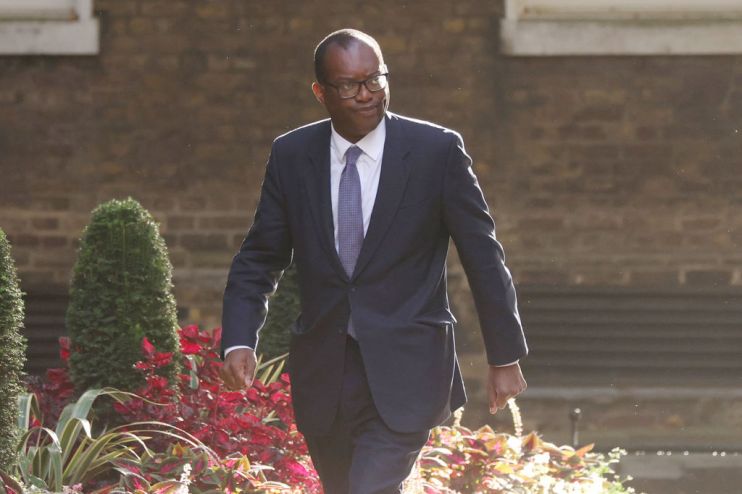Kwarteng vows ‘new era’ as he prepares to unveil tax-cutting mini-Budget

Kwasi Kwarteng will tomorrow outline the biggest package of UK tax cuts in more than 30 years as a part of the government’s bid to launch a Thatcherite economic revolution.
The chancellor today confirmed he would axe this year’s 1.25 percentage point increase in National Insurance in tomorrow’s mini-Budget and he is expected to cancel a planned hike in National Insurance.
There has also been strong speculation the chancellor will axe stamp duty and move to slash other taxes as he and Liz Truss radically overhaul UK economic policy.
Paul Johnson, the director of the Institute for Fiscal Studies (IFS) think tank, said the fiscal statement would be “the biggest tax-cutting fiscal event since Nigel Lawson’s budget of 1988”.
Kwarteng is expected to say that “taxing our way to prosperity has never worked” and that “we need a new approach for a new era focused on growth”.
He will add: “That is how we will deliver higher wages, greater opportunities and sufficient revenue to fund our public services, now and into the future.
“That is how we will compete successfully with dynamic economies around the world. That is how we will turn the vicious cycle of stagnation into a virtuous cycle of growth.
“We will be bold and unashamed in pursuing growth – even where that means taking difficult decisions.”
Kwarteng will also outline plans to create “investment zones” around the country, which will see businesses given time-limited tax cuts in these areas, and he will scrap several major EU regulations on the City.
Today’s confirmation that the government will axe the National Insurance rise won wide plaudits from many British business groups.
The Treasury said scrapping the National Insurance hike – which was originally brought in to pay for increased health and social care spending – will save businesses an average of £9,600 in 2023-24 and individuals an average of £300.
The Federation of Small Businesses chair Martin McTague said the National Insurance rise would have led to “50,000 fewer jobs in the economy and added billions to the costs of doing business”.
“It was a spectacularly bad tax, contributing to the economic slowdown and worsening the cost of living crisis. Small businesses are glad to see the back of it,” he said.
Kwarteng’s Budget will likely land well with the Tory rank and file, but there have been concerns from the IFS that it will put the country’s finances on an “unsustainable path”.
The IFS, in a report with Citi, said the expected policies will blow a £60bn-a-year hole in the UK’s budget.
It has also been suggested that some of the benefits of Truss’ tax cuts will be neutralised by the Bank of England’s tight monetary policy.
The Bank today moved to increase interest rates by 0.5 percentage points to 2.25 per cent.
Labour shadow chief secretary to the Treasury Pat McFadden said the “choice to fund all of this through borrowing and not attempt to fund even a proportion of it through a windfall tax on the energy companies making the most from the current crisis increases risk and leaves British taxpayers paying more for longer”.
“They are doing all of this at a time when inflation is high and interest and mortgage rates are already on the rise,” he said.